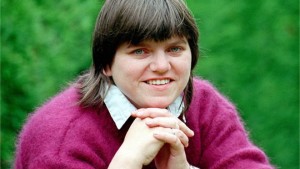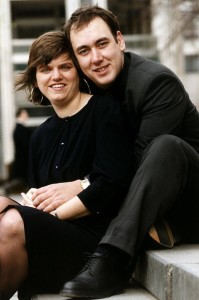Ronald J Sider 1939- 2022
With the death of Ronald Sider we say ‘a dieu’ to one of the most significant evangelical Christian voices of the last 60 years. Born in in Erie, Ontario, Canada in 1939, he became known for his rejection of any dichotomy between evangelism and social action and his claim that the gospel encompassed the whole of life. Since the 1970s he has been urging evangelicals to recognize the imperative to social justice, peacemaking, and advocacy for those on the margins.
Sider was raised in the Brethren Church did his doctorate at Yale, taught at Messiah College PA, then at Eastern Baptist Theological Seminary (now named Palmer Theological Seminary.) By his early 30s he was urging Christians to move beyond the prevailing pietism and parochialism which characterised many North American denominations and embrace the global implications of following Jesus. His seminary biography said: “Over the years, Ron has challenged the followers of Jesus to embrace and live out the twin biblical mandates of evangelism and social action in his teaching, writing, and speaking. His effective ministry has borne fruit in the seminary classroom, the local and global church and further afield in the public sphere, both in the United States and abroad.”
In 1973, he joined 40 evangelical leaders at a conference on politics organised by Calvin College. (Time magazine suggested wryly that it was probably the first time in the twentieth century that 40 evangelical leaders spent a whole weekend discussing social action.) Out of this came the far-reaching Chicago Declaration of Evangelical Social Concern, which took the outworking of the gospel into many areas of need. It called for evangelicals to work for an end to racism, economic injustice, western materialism, militarism and gender inequality. Signed by dozens of evangelical leaders, the declaration confessed that evangelicals had not ‘demonstrated the love of God to those suffering social abuses.’
Still one of the younger leaders, Sider was keen that the momentum should not stop there. It didn’t. A new movement – Evangelicals for Social Action – followed drawing in believers from many denominations. (Its name persisted for 48 years until in September 2020 it was reluctantly changed to ‘Christians for Social Action,’ since ‘evangelical’ in North America had become too identified with the dominant group of right-wing Republicans who championed Donald Trump.)
Sider’s impact grew throughout the 1970s. In 1977 he wrote Rich Christians in an Age of Hunger which quickly became a global resource. In it, Sider argued that we cannot address global economic injustices simply through individual social ethics, but through structural change. Consequently he called upon evangelicals to come together to lobby governments, not least the US Congress, to take active measures to alleviate poverty and bring justice to the dispossessed. Among many other measures, it argued for a reduction in military spending and the dropping of barriers to imports from developing nations.
In 1977, Ronald Sider teamed up with John Stott to co-author the Grove Booklet, ‘Evangelism, Salvation and Social Justice’ and their co-operative relationship spanned the next thirty years. They convened through the Lausanne’s Theology and Education Working Group which John chaired and explored the commitment to simple lifestyle expressed in the Lausanne Covenant. In 1980 Stott and Sider sponsored a four day conference in the UK on Simple Lifestyle involving 85 Christian leaders from 27 countries. The aim was to ‘listen to the voice of God’ through the Bible, the cries of the hungry poor, and each other.
Although eighteen years his junior, Ron Sider’s impact on John Stott’s thinking was evidenced in his own 1984 book, Issues Facing Christian Today. It impacted evangelical leaders in developing countries, also especially in Latin America. Sider’s perspective was not new to Rene Padilla and Samuel Escobar in Latin America, but they were grateful that people in North America were beginning to see the wider vision.
Sider’s Rich Christians did not convince everyone. Loved by radical Christians who wanted to see an effective outworking of their faith, it was rejected both by those who espoused the ‘prosperity gospel’ and those identifying with right-wing individualism. In March 1981 John W Robbins wrote for The Trinity Foundation a lengthy article to critiquing Sider as economist, theologian and historian arguing:
‘Sider’s movement is the ecclesiastical tail on the socialist political dog. Far from being the vanguard, it is the rearguard of the socialist movement. God promises to prosper those who obey him, and the prosperity of the West is obvious evidence of God’s faithfulness. Sider regards it as evidence of our immorality.’
In the same year David Chilton’s scathing critique, Productive Christians in an Age of Guilt Manipulators: a biblical response to Ronald J Sider asserting that Sider’s book took a position contrary to the biblical teachings on economics, poverty, and giving, and that the economic model it provided was untenable.
The divergence between Sider and the right-wing stance of his critics continues into the present day. Sider was ready to revise arguments in the light of critical points, but always maintained that the justice of God throughout the scriptures should be the touchstone for understanding and responding to global issues. Many of those who agree with him continue to see in the ‘prosperity of the West’ the impact of exploitation, abuse of power, impact of the arms trade and the legacy of a post-colonial world.
Issues of economic justice were amongst a wide range of topics Sider addressed in 30 books. In Completely Pro-Life, eg, published in the mid-1980s, Sider called on Christians to oppose anti-life policies not simply by opposing abortion, but nuclear weapons, hunger, and injustice.
Peacekeeping was high on Sider’s agenda. As a member of Philadelphia’s Oxford Circle Mennonite Church, he gave a keynote address at the 1984 MWC assembly in Strasbourg, France, suggesting that Anabaptists’ were following a ‘risk-free pacifism.’ Whilst refusing to participate in war, they took no action prevent violence. For him, poverty alleviation and pacificism went together. His message insisted:
“Unless comfortable North American and European Mennonites and Brethren in Christ are prepared to risk injury and death in nonviolent opposition to the injustice our societies foster and assist in Central America, the Philippines, and South Africa, we dare never whisper another word about pacifism to our sisters and brothers in those desperate lands. Unless we are prepared to pay the cost of peacemaking, we have no right to claim the label or preach the message.”
It was inevitable that Sider would be drawn into the climate change debate. Amid yet another evangelical divide, particularly in USA, Sider was one of the dozens of signatories of a 2006 document, “Climate Change: An Evangelical Call to Action” commending sustainability measures now widely accepted today. He felt those who opposed activism on global warming were ‘going to look really silly in another ten years.’ Sixteen years later, in the intense heat of a record-breaking summer, we saw again he was right.
Over the last decade Sider’s public leadership has continued. In the political realm his signature along with around 70 faith leaders was on an 2015 open letter to President Barack Obama urging him to keep a federal rule allowing religious organizations, contractedwith the federal government to hire people in keeping with their religious views. In 2020 Sider publicly criticised Donald Trump in a, The Spiritual Danger of Donald Trump: 30 Evangelical Christians on Justice, Truth, and Moral Integrity. In an interview he said “Our plea is to white Evangelicals to please take another look and ask, ‘Does this person measure up to biblical norms?'” Tragically, so many of those leaders have not faced that question.
Sider’s writings and public addresses were only one aspect of his Christian discipleship. As his friend Tony Campolo said reflecting on the time when Sider ‘s family moved into a disadvantaged black area, ‘It wasn’t just an academic perception of the Bible. It was living out his beliefs in a way that became a model for many of us.’ His personality itself spoke volumes. When I first met him in the 1990s, the constant label given him- ‘radical’ and ‘non-compromiser’- had conveyed someone stern, perhaps austere. I was struck instead by his gentleness and the way he engaged with and encouraged others. For his friend, Craig Keener, this was his way of life: in his own excellent obituary in Christianity Today he observed: I found him ready to embrace what he saw as the best solutions from either side of today’s (tragically polarized) political aisle, and he maintained contacts on both sides of that split. He always remained the consistent evangelical Anabaptist that he was—living simply and sacrificially and working on behalf of the needy.’”
In 2021, Ron Sider was diagnosed with bladder cancer, and underwent radiology and chemotherapy treatments. On July 27 2022 he died following cardiac arrest. He is survived by his wife of 59 years, Arbutus Lichti Sider their three adult children and their families. Our loss is huge, theirs must be overwhelming. But with them we offer heartfelt thanks to God for a Christian life so well lived.



